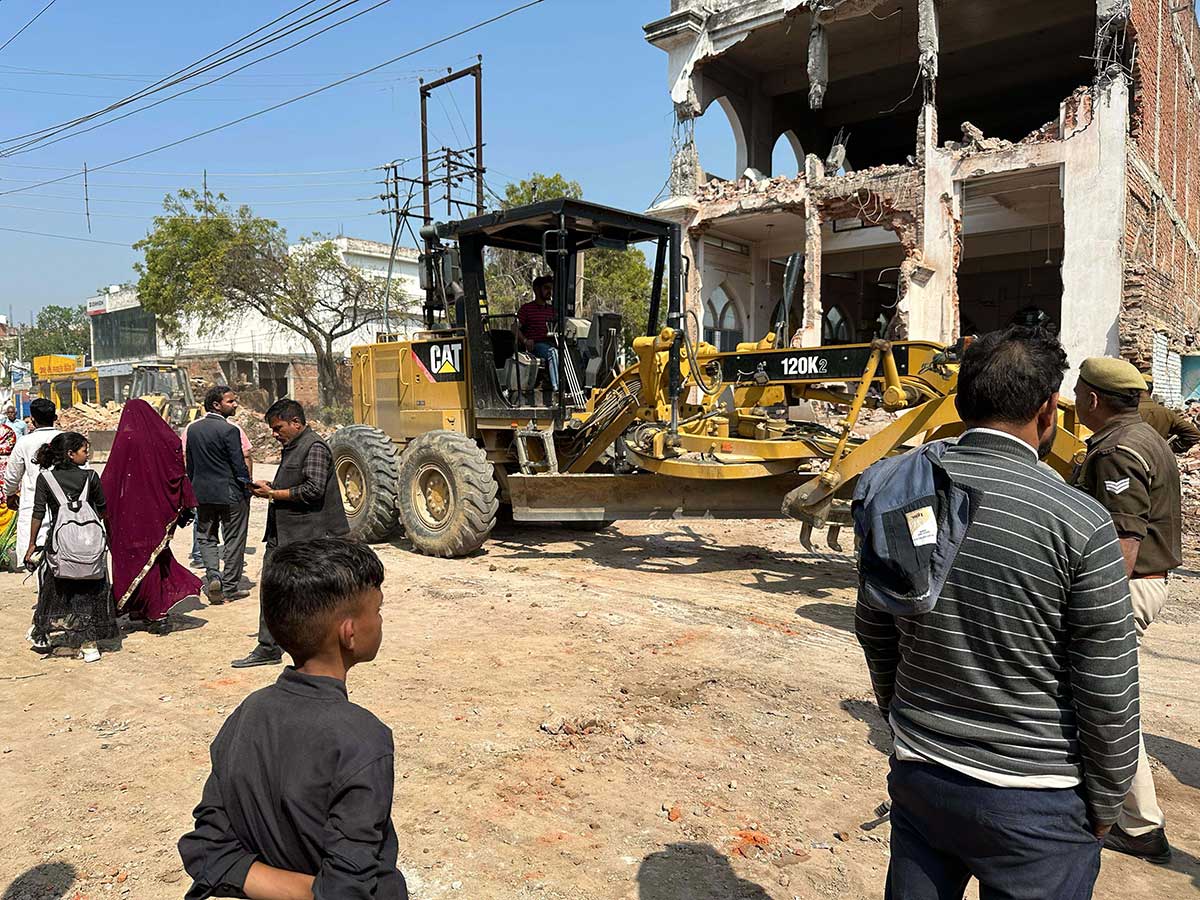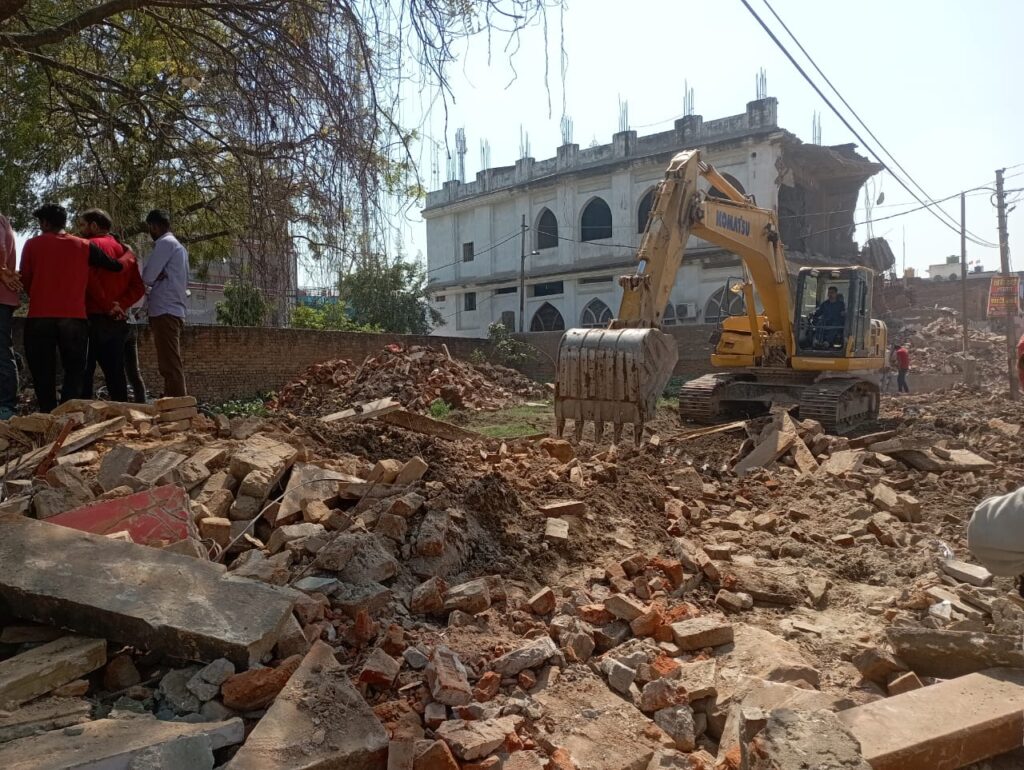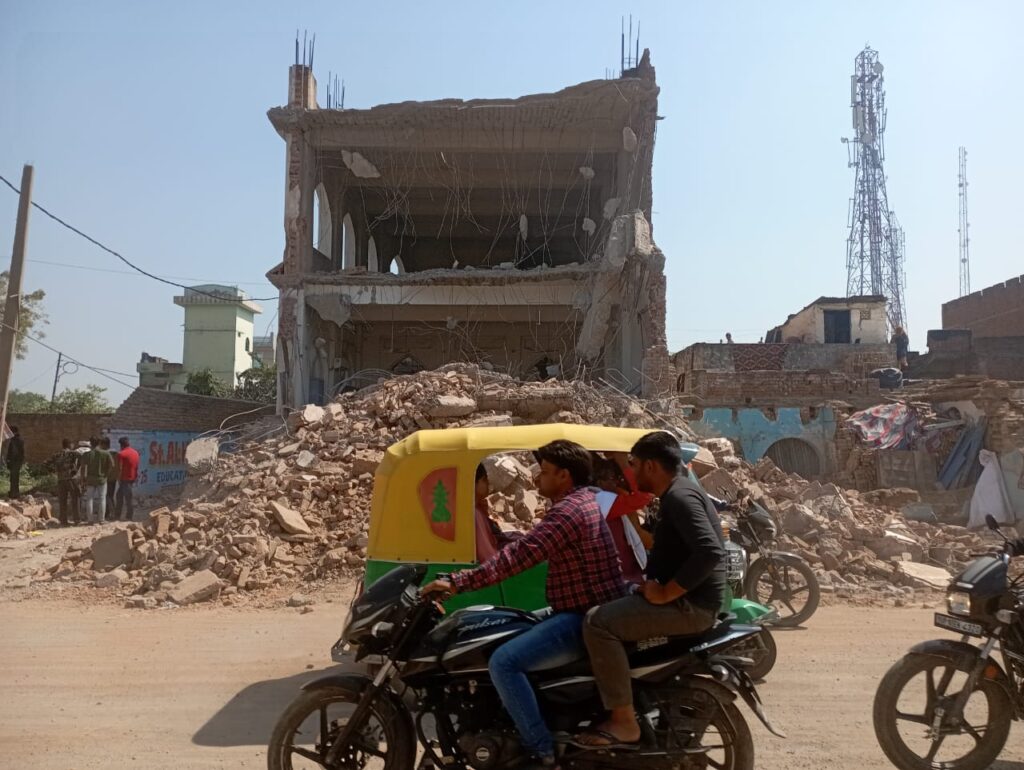The road widening project has brought unrest and protests from local residents as demolitions are scheduled for the widening project. Furthermore, tensions got worse and local dissatisfaction grew as the administration included a mosque and a temple for demolition. The Haider Abbas Mosque and Gwal Temple both are located near the Ramnagar police station were marked for demolition, however, locals voiced their objection to the demolition of the mosque and the local Muslims even asked for a short period to empty the mosque before the mosque’s demolition. According to reports, the administration gave them a period of one and a half hours to remove their belongings from the mosque.
A panchayat meeting was conducted over the dispute before the demolition. The people demanded for relocating the mosque to another suitable empty land. Similarly, a group of people also demanded that the Sheetagol Mata Temple be given another land to be rebuilt. The panchayat then finally decided the temple would be rebuilt only a short distance behind its current location. However, according to Amar Ujala, the issue of the mosque is still unsorted.
According to locals, the demolitions took place on 28th February. Sabrang India spoke to people on ground who stated that the mosque and temple were demolished under heavy barricading due to which there was a heavy and long traffic jam. The now-demolished mosque, the locals say, was only built shortly before the COVID-19 pandemic. The people on ground are saying that they are going to be patient with this setback. The ulema of the mosque have also stated that they will be patient, and god willing, another mosque should be made. In words from the ground sourced by Sabrang India, citizens claim that the temple was dedicated to the deity Ram.
In a video by online news portal NS10, Zahoor Khan shows visuals from the ground before the demolition. The video shows the view from inside the mosque as it has being removed of all belongings in it. Khan says that the road-widening project will intrude and take more than 6-7 metres inside the mosque. A clip from the discussions with the administration can be seen, where the authorities are saying that the mosque administration knew of the demolition for months, to which the people responded that there was no written notice.
Amnesty International’s report, released recently, was conducted across all five states and revealed that many of such demolitions were conducted without following the due process. State authorities, without prior notice or any resettlement options, conducted these demolitions at times conducted without warning and often, under the cover of night which left the now displaced people in shock, with no time to evacuate their homes and businesses or protect their remaining things from their homes. Amnesty reports that it interviewed about 75 survivors out of which it noted that only six received any kind of prior notice from authorities about the demolitions. Even in those instances where they were offered any notice, it barely left them any time to challenge the demolition orders in court. The report also noted that existing provisions and laws do not meet human rights standards.
Related:
Demolitions as retributive state policy used against minorities in India: Amnesty



